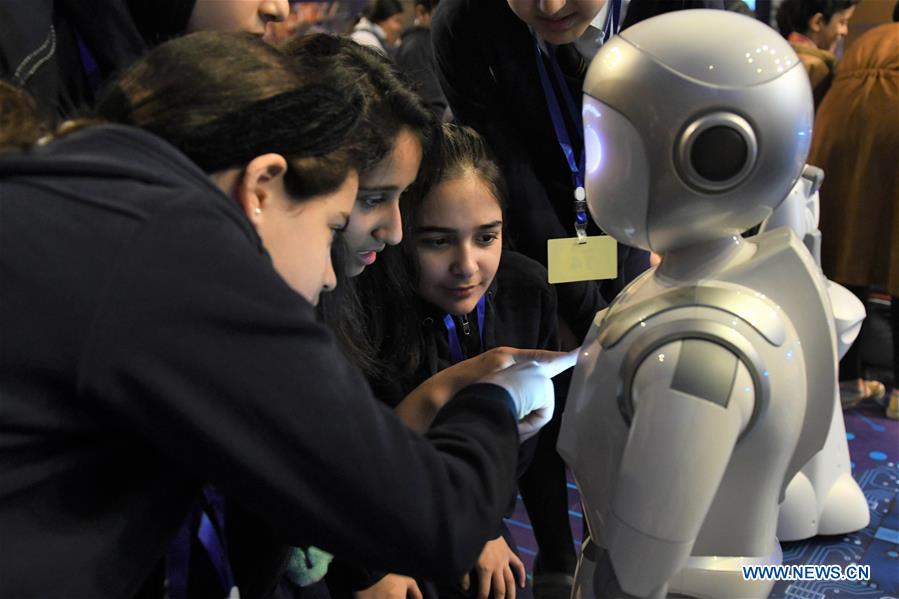
Children interact with a robot at the Robotics and Artificial Intelligence (AI) Festival in Hawalli Governorate, Kuwait, on Feb. 9, 2020. (Photo: Xinhua)
BERLIN, Feb. 19 (Xinhua) -- German engineering and technology company Bosch has established ethical "red lines" for the use of artificial intelligence (AI) and issued company guidelines for the use of AI in its products, the company said on Wednesday.
"Artificial intelligence should serve people," said Bosch Chief Executive Office (CEO) Volkmar Denner at the opening of Bosch ConnectedWorld (BCW), the company's annual conference on the internet of things (IoT) in Berlin. "Our goal is that people should trust our AI-based products."
The AI code of ethics is based on the maxim that "humans should be the ultimate arbiter of any AI-based decisions," according to Bosch. As such, AI would need to be safe, robust and explainable, while people should retain control.
Bosch products using AI should "not violate the articles of the Universal Declaration of Human Rights" and would be required to comply with the laws of the countries for which the AI products are made.
With the establishment of the AI guidelines, Bosch also expects to contribute to the public debate on artificial intelligence. "AI will change every aspect of our lives," Denner said. It would take more than just technical know-how to establish trust in intelligent systems.
According to a recent Ipsos survey, consumers in Germany expect more transparency and security in the use of artificial intelligence. Eighty-five percent of Germans want AI products and applications to be clearly labeled and 78 percent believe that the government should pass laws to regulate artificial intelligence.
For Bosch, AI has become a "technology of vital importance." The company wants to have all products either contain AI or have been developed or manufactured with the support of AI applications by 2025.
Artificial intelligence has become a "global engine of progress and growth," according to the company. According to management consultants PwC, AI would boost gross domestic product (GDP) by 26 percent in China, 14 percent in North America and around 10 percent in Europe.
By analyzing "huge volumes of data," AI could help overcome challenges, such as the need for climate action and the optimization of transportation, medicine and agriculture, according to Bosch.
To address these issues, Bosch participates in the High-Level Expert Group on Artificial Intelligence (AI HLEG), a body appointed by the European Commission in 2018 to advise on ethical, legal and societal issues related to AI.


